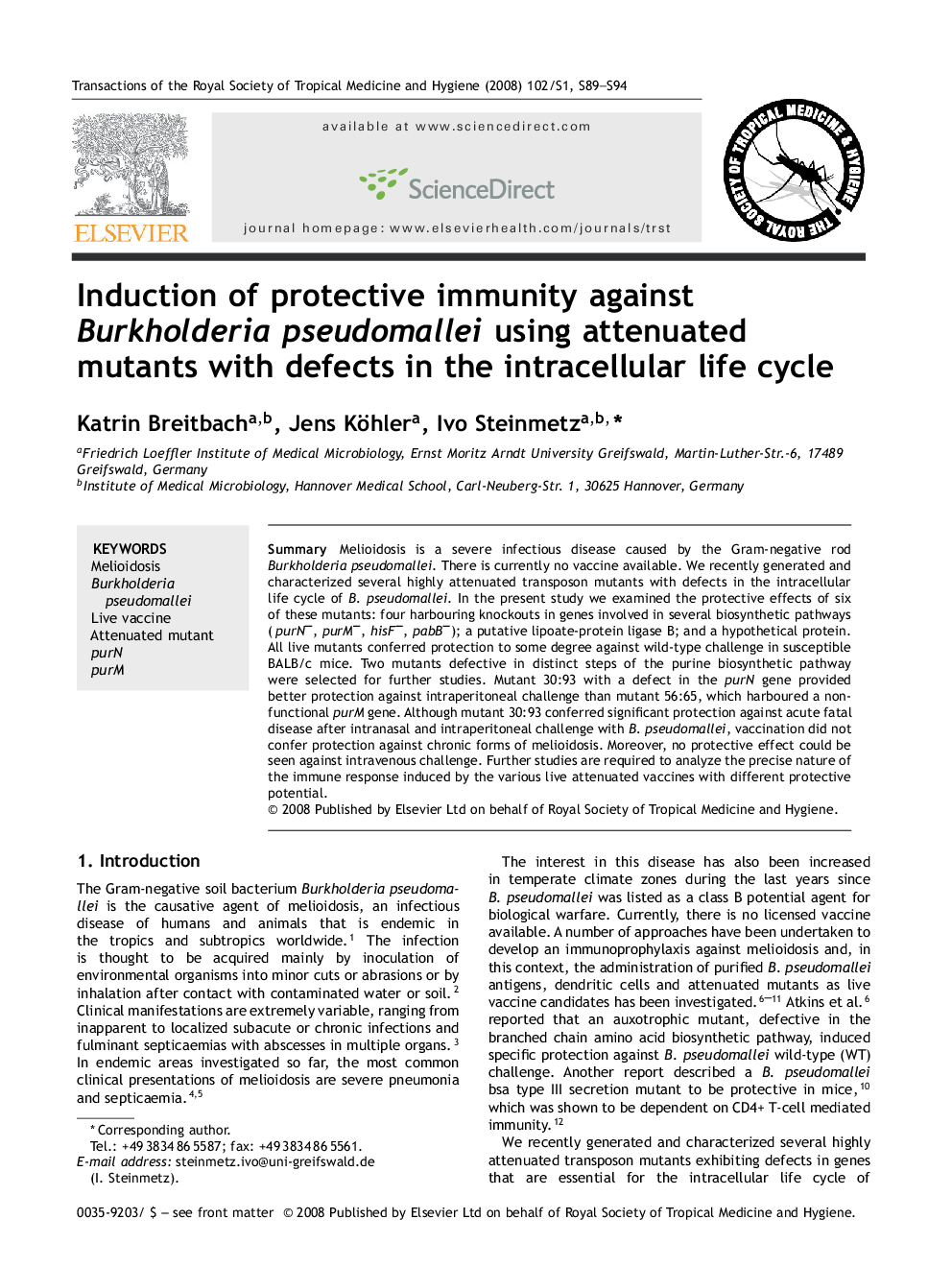| Article ID | Journal | Published Year | Pages | File Type |
|---|---|---|---|---|
| 3420909 | Transactions of the Royal Society of Tropical Medicine and Hygiene | 2008 | 6 Pages |
Abstract
Melioidosis is a severe infectious disease caused by the Gram-negative rod Burkholderia pseudomallei. There is currently no vaccine available. We recently generated and characterized several highly attenuated transposon mutants with defects in the intracellular life cycle of B. pseudomallei. In the present study we examined the protective effects of six of these mutants: four harbouring knockouts in genes involved in several biosynthetic pathways (purNâ, purMâ, hisFâ, pabBâ); a putative lipoate-protein ligase B; and a hypothetical protein. All live mutants conferred protection to some degree against wild-type challenge in susceptible BALB/c mice. Two mutants defective in distinct steps of the purine biosynthetic pathway were selected for further studies. Mutant 30:93 with a defect in the purN gene provided better protection against intraperitoneal challenge than mutant 56:65, which harboured a nonfunctional purM gene. Although mutant 30:93 conferred significant protection against acute fatal disease after intranasal and intraperitoneal challenge with B. pseudomallei, vaccination did not confer protection against chronic forms of melioidosis. Moreover, no protective effect could be seen against intravenous challenge. Further studies are required to analyze the precise nature of the immune response induced by the various live attenuated vaccines with different protective potential.
Related Topics
Life Sciences
Immunology and Microbiology
Applied Microbiology and Biotechnology
Authors
Katrin Breitbach, Jens Köhler, Ivo Steinmetz,
